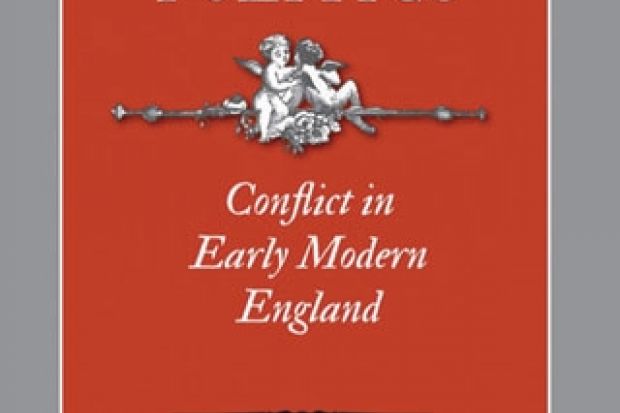This is a puzzling book. The author clearly fancies himself as a radical, a playful iconoclast, a sharp-witted opponent of academic pomposity. So far, so good, albeit mildly irritating, particularly when it comes to the affectedly casual prose. (When chapter 1 begins “Wasn’t the culture of early modern England chock-full of misogyny? You betcha”, it’s hard not to feel weary already. Academics trying to be trendy are like parents at the school gates trying to be hip – just embarrassing.)
The puzzle is that the conclusions being served up as something edgily groundbreaking describe fairly straightforward aspects of early modern society that we have known about for years. Don Herzog is attacking the idea “that misogyny reigned across the board, that everyday life was so drenched in it that people couldn’t imagine or pursue alternatives”. Does anybody still think this? Has anybody ever really thought this? He pulls apart the notion that the division between public and private was straightforwardly gendered, “public man, private woman”, and argues that conflict was not opposed to social order but rather an essential part of social order. He looks at the place of servants in the household and finds that there was warmth as well as subservience, and defiance alongside obedience. Power relationships were negotiated, not just imposed; claims to authority were routinely challenged and undermined. In short, he looks at early modern society and discovers that it was complicated.
It is hard to know who the target audience is here. Herzog appears to have a quarrel chiefly with political theorists. “Political theorists inherit a canon – the one that runs Plato, Augustine, Aquinas, Machiavelli, Hobbes, Locke, and so on, blithely skipping over centuries and continents – centered on abstract theoretical investigations of the ideal government. It’s a mistake to enlist those sources as the distilled essence of their times and places.” This may be true, but the number of close-minded political theorists in this world is surely fairly small. Most political theorists neither ignore nor despise social history, they just happen to be working on something else. If he’s really aiming at modern-day conservative thinkers who are fantasising about the past then maybe there’s a justification, but how many Republicans base their social policies on an uncritical reading of The Taming of the Shrew?
Herzog is eager to demolish “our quaint divide between social and intellectual history”. He urges us to look away from the “canonical texts” and to focus on the “smart and savvy” alternatives offered by “popular songs, jokes, sermons, pamphlets, diaries, letters” and so on. This definitely makes the book more entertaining, as he bounces through various bawdy poems, satirical plays and rude songs. He is also quite interesting when it comes to playing with the terminology: what we mean by “public” and “private”. The terms are firmly set in his own 21st-century categories, however, with not much suspicion that early modern men and women might have had other priorities. Most of the evidence comes from between 1650 and 1750, but there’s barely a mention of the political upheavals of those years, and not much about religion, both of which may have made some modest contribution to these debates as far as contemporaries were concerned.
In conclusion, we find that “the household is shot through with controversies about legitimate authority, richly political, full stop. The early modern English couldn’t have been clearer in articulating and pursuing the stakes.” This is fair enough, but I’m not sure readers are going to be as surprised by this as the author seems to expect. We have to hope that somewhere in this world there really are some political theorists whose blind faith in the totality and longevity of early modern patriarchy has just been shattered by this book.
Household Politics: Conflict in Early Modern England
By Don Herzog
Yale University Press, 256pp, £22.50
ISBN 9780300180787 and 195170 (e-book)
Published June 2013
Register to continue
Why register?
- Registration is free and only takes a moment
- Once registered, you can read 3 articles a month
- Sign up for our newsletter
Subscribe
Or subscribe for unlimited access to:
- Unlimited access to news, views, insights & reviews
- Digital editions
- Digital access to THE’s university and college rankings analysis
Already registered or a current subscriber? Login




